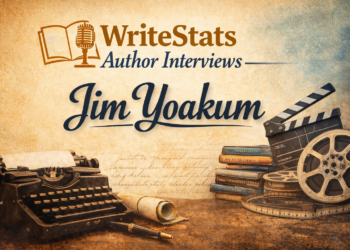As authors, we all share the same dream: to write books that readers actually finish. But the reality is, many books get abandoned halfway through. Yet one genre stands out: mystery. Data shows why mystery books are finished more often, and the lessons behind this can help you no matter what you write.
Let’s explore seven writing lessons from mysteries that you can apply to your own stories.
Lesson 1: Curiosity Keeps Readers Turning Pages
The biggest reason why mystery books are finished more often is curiosity. A mystery hooks readers with an unanswered question: Who did it? Why did it happen? What’s the truth? That natural pull makes it almost impossible to stop reading.
Tip: Start your story with a question that demands answers. It doesn’t have to be a crime. In romance, it could be “Will they end up together?” In fantasy, it might be “What secret is the kingdom hiding?”
“The secret to getting ahead is getting started.” —Mark Twain.
In writing, the secret to getting finished is keeping readers curious.
👉 Master the art of compelling story opening: 5 Tips to Hook Readers From Chapter One
Lesson 2: Clear Goals Drive Reader Investment
Another reason why mystery books are finished more often is that the genre has obvious goals. Readers know exactly what the protagonist is chasing: solving the puzzle. That clarity creates momentum.
Tip: Whatever your genre, make the character’s main goal crystal clear. Readers stay engaged when they know what’s at stake and what the character is trying to achieve.
Lesson 3: Small Wins Keep Momentum Going
Mysteries don’t just deliver one big reveal at the end. Instead, they feed readers steady “mini-rewards”: a new clue, a red herring, a surprising twist. Each small discovery gives the reader a reason to continue.
Tip: Don’t save all your big moments for the finale. Give your readers something fresh every few chapters: a secret revealed, a shift in the relationship, or an unexpected setback.
Lesson 4: Characters Matter as Much as the Puzzle
Mystery books are finished more often not just because of plot, but because of characters. Readers stick with detectives like Sherlock Holmes or Hercule Poirot because they’re fascinating, flawed, and memorable.
Tip: Even if your story is plot-driven, give your characters quirks, vulnerabilities, or unique perspectives. Readers won’t care about the outcome if they don’t care about the people.
Lesson 5: Structure Makes Stories Easier to Finish
Mysteries are often structured around clear acts and turning points. This gives readers a sense of progress; every chapter moves them closer to the solution. That sense of pacing is a big reason why mystery books are finished more often.
Tip: Map out your story like a journey. Mark down 3–5 big turning points or discoveries. That roadmap helps you keep momentum and gives readers the satisfaction of moving forward.
👉 Story Structure: 11 Popular Plot Types Explained” from Kindle Preneur – this comprehensive guide covers multiple structural approaches.
Lesson 6: Payoff Builds Trust
Readers finish mysteries because they know they’ll get answers. The ending might be shocking or bittersweet, but it’s rarely left unresolved. That trust keeps readers returning to the genre.
Tip: If your story ends on an ambiguous note, that’s fine, but make sure you deliver closure in at least one major area. If you raise big questions, answer them. It builds trust that will carry into your next book.
“It is the writer’s duty to keep the reader reading.” —John D. MacDonald.
Lesson 7: Loyalty Comes From Series & Consistency
Finally, another reason why mystery books are finished more often is series loyalty. Fans love recurring detectives, familiar settings, and ongoing arcs. When they know what they’ll get, they commit to finishing.
Tip: Even if you’re not writing mystery, consider recurring characters, a shared world, or a connected theme across books. This consistency can turn casual readers into lifelong fans.
Why This Matters for Authors
From surveys, we know:
- 40% of readers finish thrillers, among the highest completion rates of any genre (BookTasters survey).
- 1 in 4 readers read purely for enjoyment, meaning they want stories that entertain and pull them in (see our post here).
These numbers show that understanding why mystery books are finished more often isn’t just trivia; it’s a roadmap for writing books readers love and complete.
Final Takeaway
Mysteries succeed because they keep readers curious, give steady rewards, and deliver satisfying closure. But the real lesson is this: you can borrow these tools for any genre.
Ask yourself:
- What question will keep my readers hooked?
- Am I giving them small wins along the way?
- Does my ending pay off the journey?
When you apply these lessons, you’ll give your readers the same “just one more chapter” feeling that makes mysteries irresistible and, more importantly, you’ll write books that get finished, remembered, and recommended.









